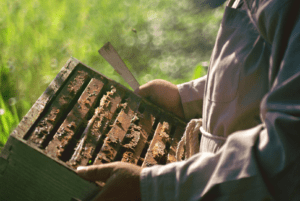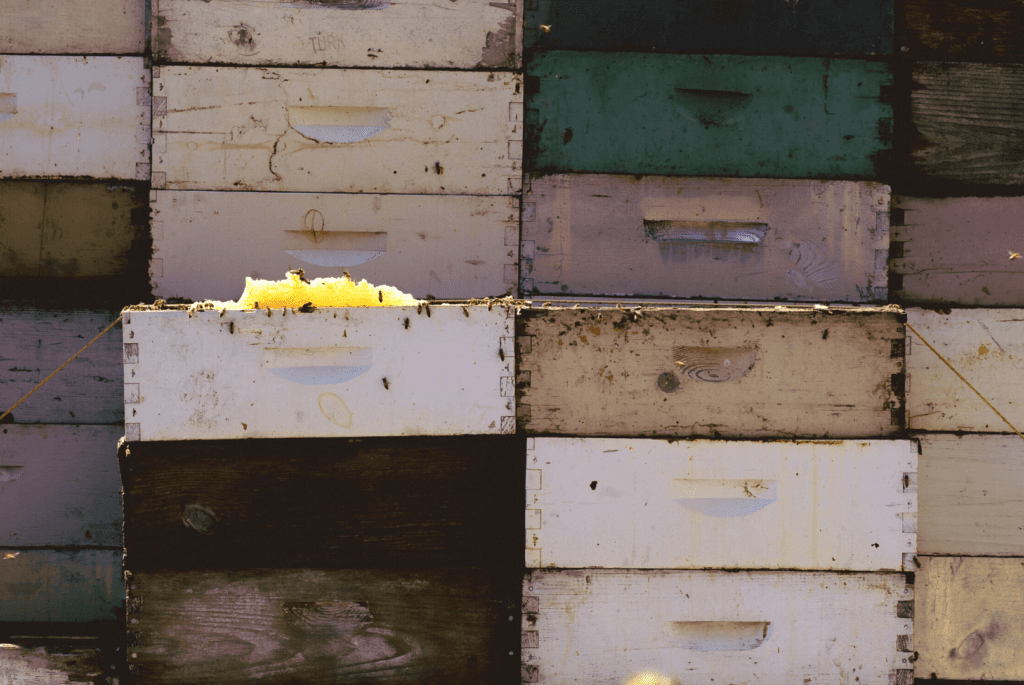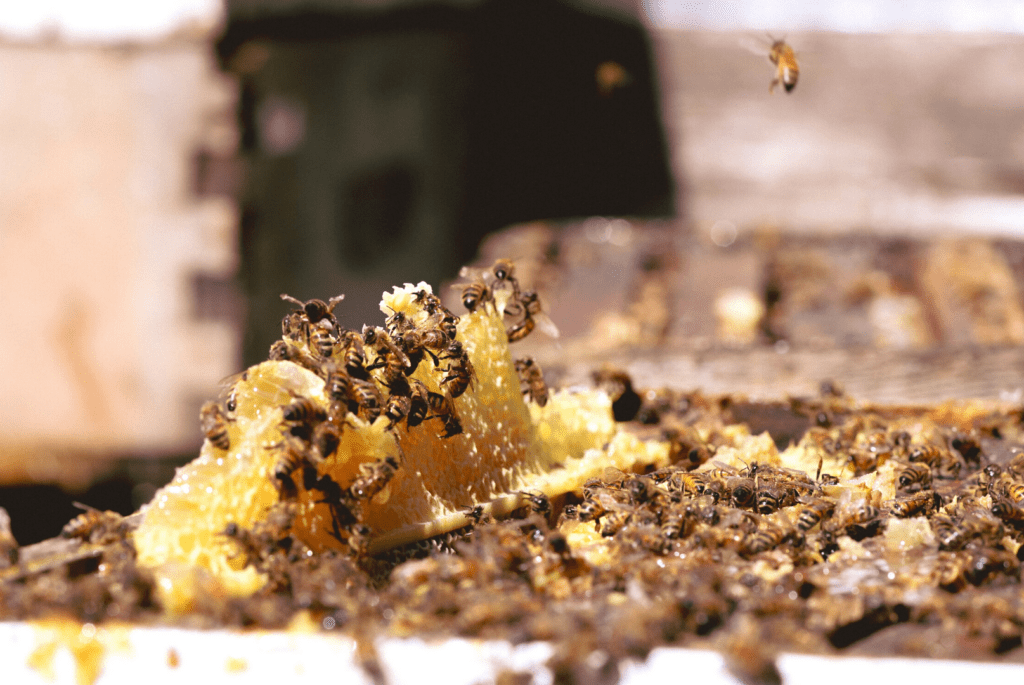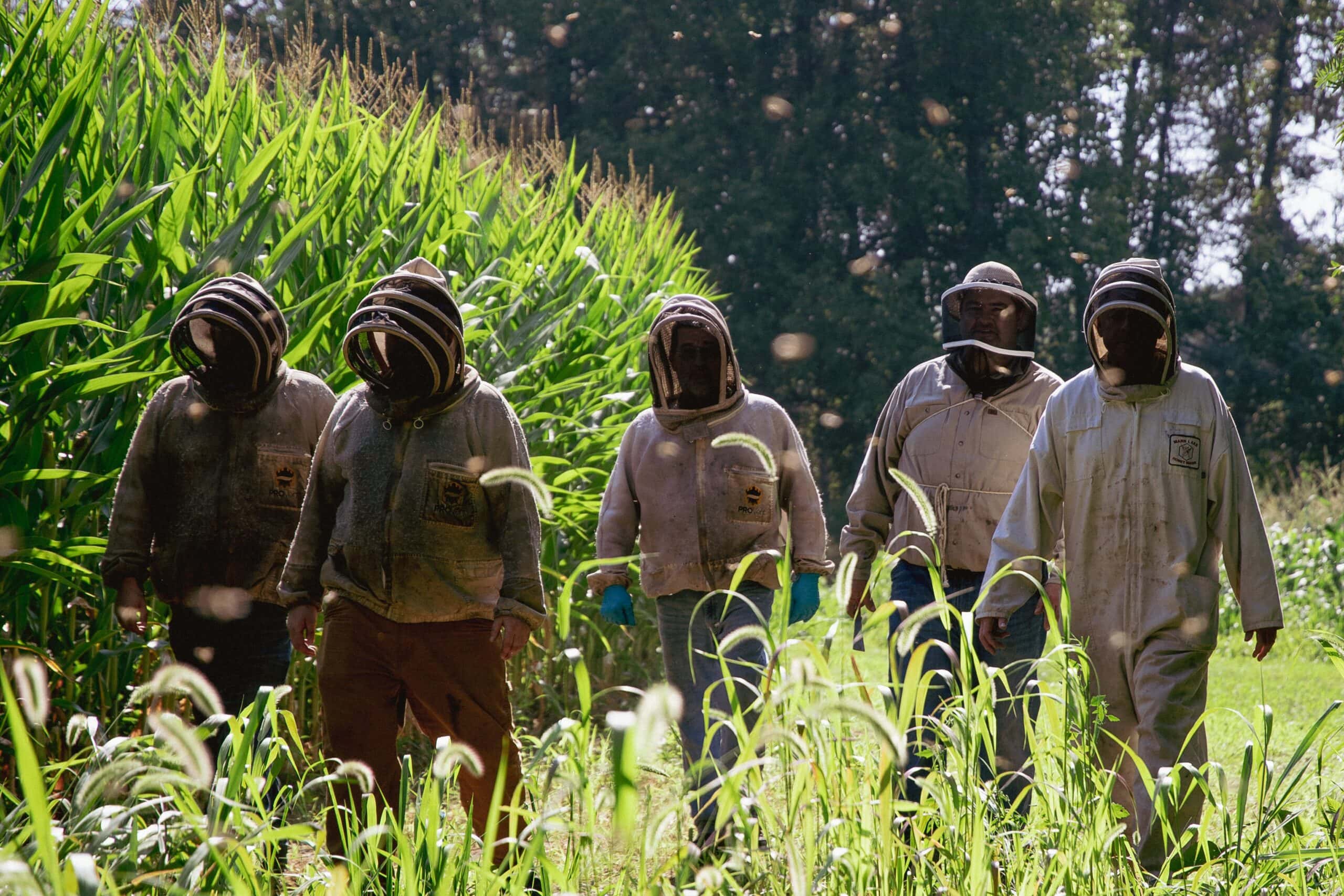The Winter family, who supplied our first batch of Florida Orange Blossom Honey and Beekeeper’s Cut Raw Honey, have been producing honey and providing pollination services for over 50 years. Run by Bonnie, Wayne, their son Dan, and other family members, they manage 2,000 to 2,500 hives that they move throughout the year. The summer months are spent at their home in Wolcott, New York and the winter season is divided between Florida and California. With generations of knowledge about bees, they are a valuable resource in this time when the bee population is seriously under threat.

When we first set out to find an apiary with exceptional honey, we met the whole Winter family but Dan remained our main contact. He started keeping bees when he was eight, immersing himself in the business like the three generations before him. Ask him nearly anything about beekeeping and he can not only answer but draw you into the fascinating subject of bees and their place in a healthy ecosystem. The Winter’s bees forage on wildflowers when the hives are in upstate New York but when he moves them to Florida, they are there to pollinate watermelon and citrus crops. During their time in California, they pollinate almond orchards. “Different flowers will have different sugar content,” he explains and the flavor varies widely depending on the pollen and time of year.

Dan runs his family business but has also become involved in the wider beekeeping community by becoming the president of Empire State Honey Producers, Vice President of American Beekeeping Federation, and a member of The Florida Beekeepers Association. The problems facing honey bees today are numerous: varroa mites, bacterial infections, pesticides, and loss of habitat are just a few. “We used to see around 10% dieoff during the winter season and now it is more like 40%.” The means of solving these problems entail addressing not only the agricultural community, but regular landowners as well. Dan is a big proponent of sustainable agriculture, not only for the health of honey bees but, as he says, for the greater good of all pollinators.

We couldn’t help but ask the question most people want to know when they meet a beekeeper: do you ever get stung? “All the time,” he says. He is used to it and barely notices when the bees circle him as he works with his crop. When I ask what his favorite way to eat honey is, he reveals it is a grilled cheese sandwich with honey – the trick is to put it on before you cook it. If you’re looking to make it yourself, check out our aptly named Beekeeper’s Grilled Cheese.


